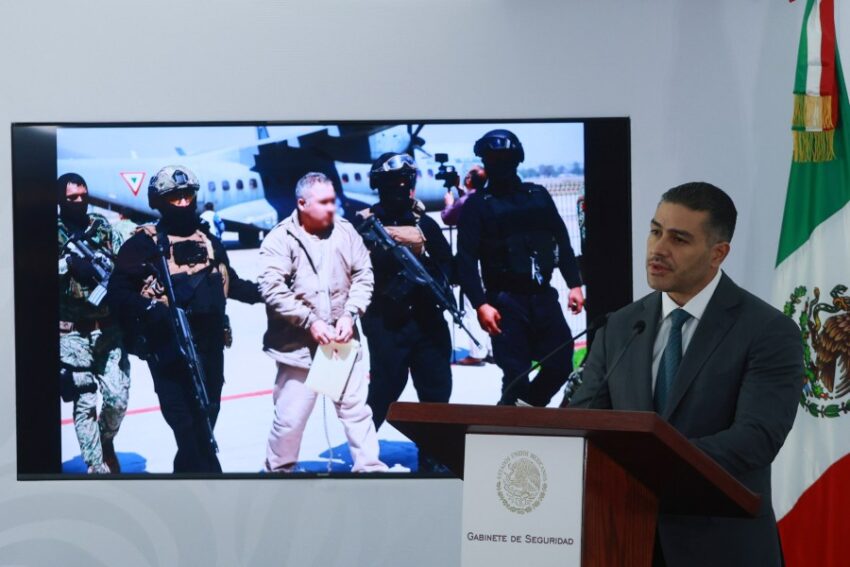EL PASO, Texas (Border Report) – Mexico’s handover of 29 jailed drug kingpins to U.S. authorities earlier this year sent a powerful message to transnational criminal organizations south of the border that they cannot escape American justice in foreign jails where sometimes they continue to direct their operations with local officials turning a blind eye.
Now, a former high-ranking Drug Enforcement Administration official is suggesting making a serious dent in fentanyl trafficking, money laundering and other crimes by having Mexico turn over on a regular basis influential criminals wanted in the U.S.
“Those 29 that they sent to us back earlier this year was a very significant event,” said Christopher J. Urben, retired assistant special agent in charge of the DEA in Washington, D.C. “That needs to be done on a monthly basis. If there are several hundred extraditions pending, they need to be sent to us. Anyone else who is a mid-level cartel member or higher should be indicted and expelled or extradited from Mexico in a timely matter. That would have a dramatic impact on the cartels.”
Urben’s testimony came during a hearing of the Senate’s Foreign Relations Committee this month on how to get rid of cartels still flooding America’s streets with fentanyl and new dangerous synthetic drugs such as pink cocaine and enhanced methamphetamines.
The 25-year counterdrug operations veteran said extraditions played a key role in returning the rule of law to Colombia in the 2000s and is a model that can be replicated in Mexico.
“As we learned from our success from the fight against the cartels in Colombia, when cartel members know they will face justice for their crimes in the United States instead of their own countries’ judicial system, it drastically reduces their ability to operate,” said Urben, who is now managing director of the global security firm Nardello & Co.
He said “hundreds” of extraditable mid-level and senior cartel leaders continue to operate in Mexico and other Latin American countries either because local authorities won’t arrest them or because they conduct business as usual after being incarcerated.

Urban’s insights drew praise from committee members, who also heard from an expert on U.S.-Latin American relations.
Vanda Felbab-Brown, director of Initiatives on Nonstate Armed Actors for the Washington, D.C.-based Brookings Institution, said stepped up extraditions could lay bare any collusion between criminals and government officials.
“Extraditions are particularly meaningful when they reveal pollical collusion and sponsors government. I hope out of the extraditions of El Mayo (Ismael Zambada Garcia) and El Chapo (Joaquin Guzman Loera), we will see revelations as to the political cover that criminal groups in Mexico enjoy,” she said.
Both experts called for an expanded role of U.S. law enforcement in the countries where the cartels are based, even though Mexico seems to be taking a more aggressive role against organized crime.
“I do believe there’s a substantial increase, but the baseline from AMLO (former Mexican President Andres Manuel Lopez Obrador) was small, so much remains to be done,” Urben said, pointing to the extraditions and the deployment of thousands of Mexican National Guard members along the U.S. border. “This is taking place in a country where criminal groups over the past six years immensely expanded their power and control of territories, people, institutions, elections and (regional) economies.”
He said Mexican President Claudia Sheinbaum was faced with the choice of cooperating with the U.S. else her country face tariffs as soon as President Donald Trump took office.
The tariffs have worked so far, but if Trump tries to expand such leverage to other, unrelated issues, he risks Mexico appeasing him with gains in those other areas and not so much on the cartels, the experts told the committee.
And if Trump continues to threaten tariffs despite improvements in Mexican justice, he runs the risk of foreign officials giving up on him.
 Read: Read More
Read: Read More




